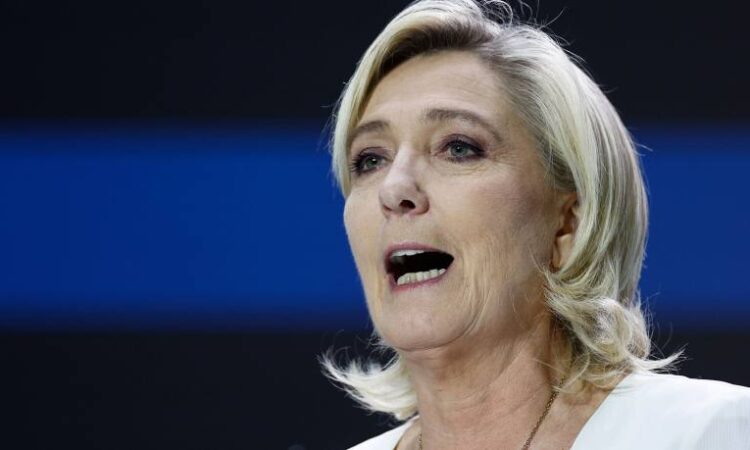
Progress on the EU’s long-gestating banking union is likely to face further delay if the far-right Rassemblement National comes to power in France’s upcoming parliamentary elections. This is a result of the party’s hostility towards deeper integration within the economic bloc, warn analysts.
RN’s “tainted” relationship with French banks, following the closure in 2017 of 16 bank accounts the party held with Société Générale, means a windfall tax on French banks’ profits also cannot be ruled out, analysts told The Banker.
While the party, led by veteran far-right politician Marine Le Pen, has yet to fully outline its policy agenda following President Emmanuel Macron’s surprise decision on Sunday to call an election, its long-standing antipathy to the EU suggests it is unlikely to be a top priority should it win a large share of seats in the new parliament.
“They wouldn’t completely back away from [the banking union], but it would take longer to implement if they come to power,” said Arnaud Journois, vice-president of global financial institutions at Morningstar DBRS.
Progress on the EU’s “banking union” — based on the three pillars of a Single Supervisory Mechanism, a Single Resolution Fund and a European Deposit Insurance Scheme — has been stop-start since the project was proposed by the European Commission in 2012.
Despite progress on the first two pillars, the EDIS — which would create a central “cash pot” financed by banks for countries to tap into if national deposit guarantee funds run out — remains a controversial prospect among EU members, despite receiving Macron’s firm backing.
“Macron is currently one of the main promoters of deeper integration within the eurozone, via initiatives such as the capital markets and banking unions,” said Hubert de Barochez, senior economist, global markets at Capital Economics.
“While the RN has dropped its pledge to take France out of the Eurozone, an RN government is unlikely to share his enthusiasm for such projects.”
Macron is due to step down in 2027, with Le Pen his potential successor and RN in charge of the executive should the party gain ground after the parliamentary vote.
Opposition to the EDIS is especially strong in Germany, where politicians fear German or northern European banks could be “on the hook” for bailing out savers from southern European countries where banks are deemed to be in poorer shape.
“So, potentially, if the RN comes to power you would have two large European countries [France and Germany] not in favour of the banking union, which would slow it down,” said Sonja Förster, who also covers global financial institutions for Morningstar DBRS.
Macron called snap parliamentary elections for June and July following the RN’s decisive victory in European parliamentary elections on June 9, which saw it win 32 per cent of the vote, more than double the support won by the president’s centrist alliance. The move took markets by surprise, with France’s CAC 40 share index falling by 2.4 per cent at their open on Sunday and banking stocks among the worst affected.
In addition to the prospect of a further delay to the banking union, a strong showing by the RN in parliamentary elections could see a bank tax levied on French banks, according to a research note from Jeffries published on Wednesday.
While the prospect of a windfall tax on French banks is still speculation at this stage rather than a stated policy of the RN, DBRS analysts said it cannot be ruled out given the party’s damaged relationship with French banks.
“The RN felt ostracised and complained about [the closure of RN’s bank accounts held with Société Générale], so they definitely don’t have a good relationship with French banks,” said Förster.
“I would actually not expect such a tax, but because of the tainted relationship [with French banks] it’s hard to predict.”
Journois said that such a tax may be little more than a token gesture should RN win a majority in the legislature, “as once they are in power, they want to remain in power”.
He pointed to the example of Italy, where a one-off 40 per cent windfall tax on profits that banks earn from higher interest rates was announced by the far-right Giorgia Meloni government. But what was implemented in the end in Italy was a “very soft windfall tax”, said Journois, as it was capped at 0.1 per cent of assets.
Förster noted that a similar windfall tax would be difficult to levy on French lenders, which have not benefited from higher interest rates as much as Italian banks. This is due to a peculiarity of the French banking system where French retail banks cannot pass higher interest rates onto consumers because many have accounts with long-term, fixed rates.
Additional reporting by John Everington





